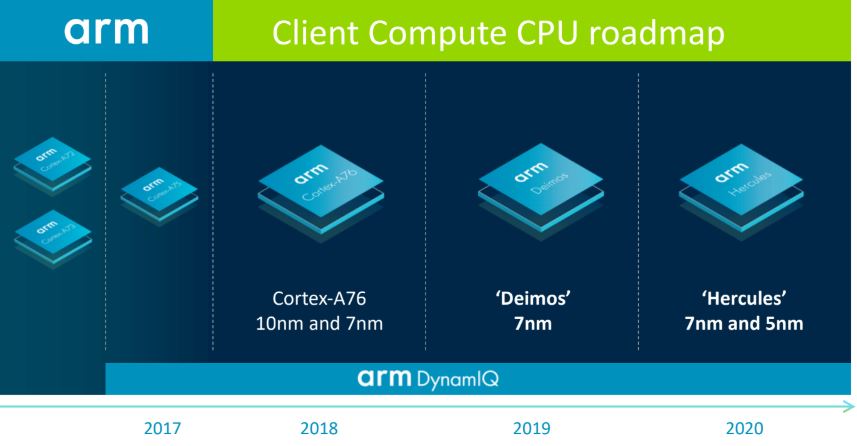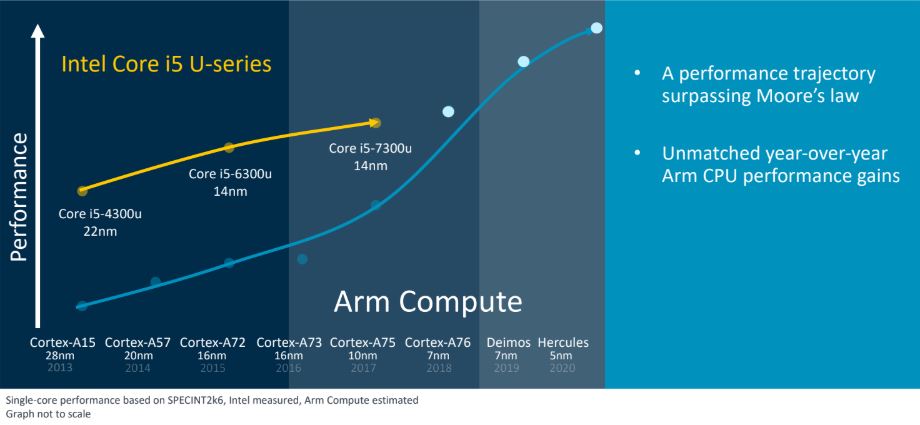Here’s How ARM Will Compete with Intel on Laptops
Sign up to receive The Snapshot, a free special dispatch from Laptop Mag, in your inbox.
You are now subscribed
Your newsletter sign-up was successful
Let the arms race begin (Pun totally intended).
Chip designer ARM recently published its first-ever public CPU roadmap, revealing the codenames of two upcoming laptop-class chips. The forecast included ambitious performance projections with comparisons to current Intel processors.
If the projections hold true, Intel could be in serious trouble.
In May, Arm unveiled a 7 nanometer Cortex-A76, a "laptop-class" chipset that is said to be on par with 7th Gen Core i5 CPUs. The company promised performance improvements of 35 percent compared to last year's Cortex-A75. It now claims those huge gains will continue, with 15 percent year-over-year improvements expected through 2020.
According to its roadmap, ARM will release another 7nm chip in 2019 codenamed "Deimos," before shrinking its process down to 5nm with the launch of a "Hercules" chip in 2020. ARM will license the technology out to vendors for upcoming 5G, always-on devices that it claims will have "battery life for days, not hours."
The company didn't provide specific performance metrics for its upcoming laptop-class chip, but projections suggest they could surpass the performance of Intel CPUs within a few years.
As you can see in the above graph, ARM estimates its processors will see exponential improvements in the next two years, resulting in a 250-percent performance increase from the Cortex-A73 in 2016 to the "Hercules" in 2020.
Sign up to receive The Snapshot, a free special dispatch from Laptop Mag, in your inbox.
We got our hands on the first Windows ARM laptops earlier this year in the HP Envy X2 and Asus NovaGo TP370QL. While we liked the built-in 4G compatibility and excellent battery life enabled by the low-power Qualcomm CPU, poor performance and compatibility issues held the devices back. With the projected performance gains outlined in the roadmap, ARM could become a viable contender to Intel, which has struggled for years to modernize its chips.
Arm said to expect more information about its laptop-class chips at TechCon in mid-October.
Phillip Tracy is the assistant managing editor at Laptop Mag where he reviews laptops, phones and other gadgets while covering the latest industry news. After graduating with a journalism degree from the University of Texas at Austin, Phillip became a tech reporter at the Daily Dot. There, he wrote reviews for a range of gadgets and covered everything from social media trends to cybersecurity. Prior to that, he wrote for RCR Wireless News covering 5G and IoT. When he's not tinkering with devices, you can find Phillip playing video games, reading, traveling or watching soccer.




